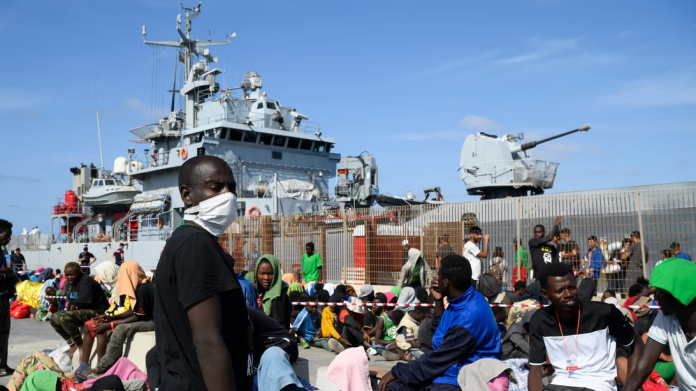Italy welcomed just three of the 12,841 migrants Germany had requested it take back under the Dublin Regulation, leaving the vast majority in bureaucratic limbo.
The stark refusal highlights Rome’s quiet resistance to a system it officially supports, exacerbating tensions with European partners, particularly Germany. The Dublin Regulation stipulates that the country where a migrant first enters the EU is responsible for processing their asylum claim and providing accommodation.
However, Italy has effectively stonewalled these obligations over the past two years, citing overwhelming strain from high arrivals from North Africa.
In 2023, Italy received 42,468 requests from other EU member states to take back migrants under the Dublin rules, the highest number among all member states. Germany, by contrast, issued 74,620 requests, the most of any country, followed by France with 48,724.
Italy’s Interior Ministry has not publicly commented on the issue, but sources confirm that the suspension of transfers is due to the immense pressure on its reception system. This echoes argument made in late 2024, when Italy said all 27 EU member states to temporarily halt transfers, citing a lack of available spaces in reception centres.
Political and legal challenges
Pasqualino Penza, an MP from Italy’s Five Star Movement and a member of the parliamentary committee on internal affairs, criticised the Dublin Regulation as “flawed and unjust,” arguing that it creates more problems than it solves. He also dismissed Italy’s temporary suspension of transfers as “pointless and clumsy,” particularly given Prime Minister Giorgia Meloni’s decision to reaffirm Italy’s commitment to the Dublin rules by signing the new EU Pact on Migration and Asylum.
Meanwhile, Matteo Mauri, an MP from the Democratic Party and vice-president of the parliamentary home affairs committee, believes Meloni’s actions are politically motivated.
She didn’t want to clash with fellow nationalists like [Hungarian Prime Minister Viktor] Orbán.
The EU Court of Justice also weighed in, ruling against Italy in a case brought by two Syrian nationals denied asylum in Germany on the grounds that Italy was responsible for processing their claims. The court confirmed that Italy could not unilaterally suspend the Dublin rules without a reasoned legal decision.
Italy’s refusal to comply with the Dublin Regulation underscores the broader challenges facing the EU’s migration system. While Meloni’s government seeks to avoid overburdening its reception system, its actions risk undermining European solidarity and the rule of law.
